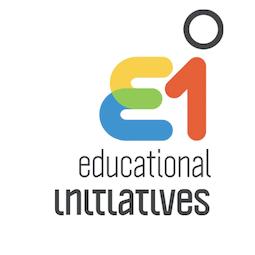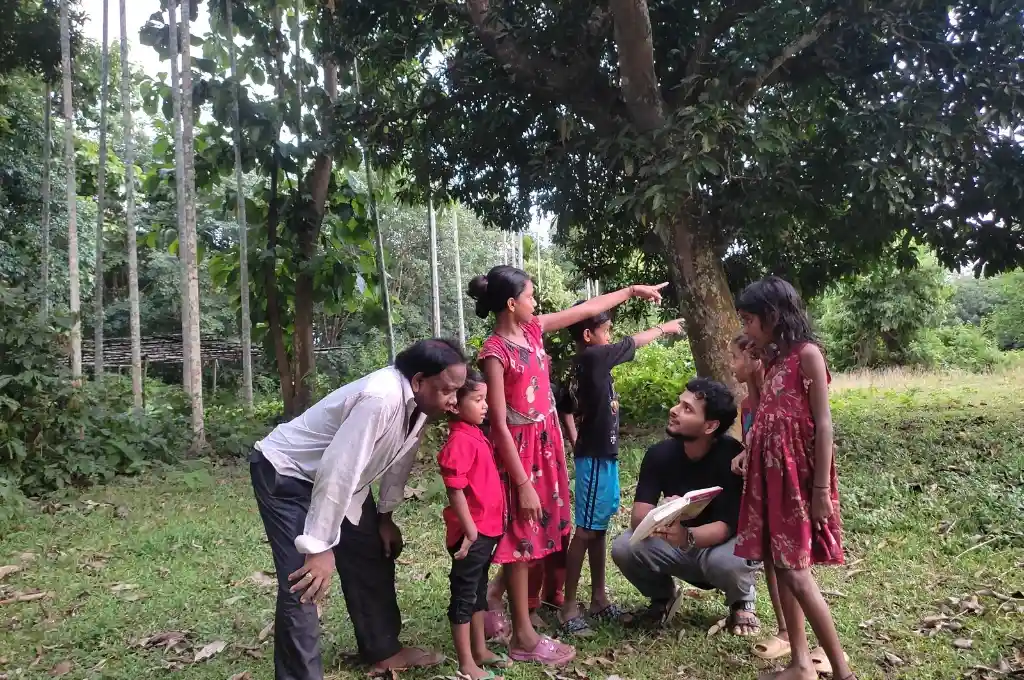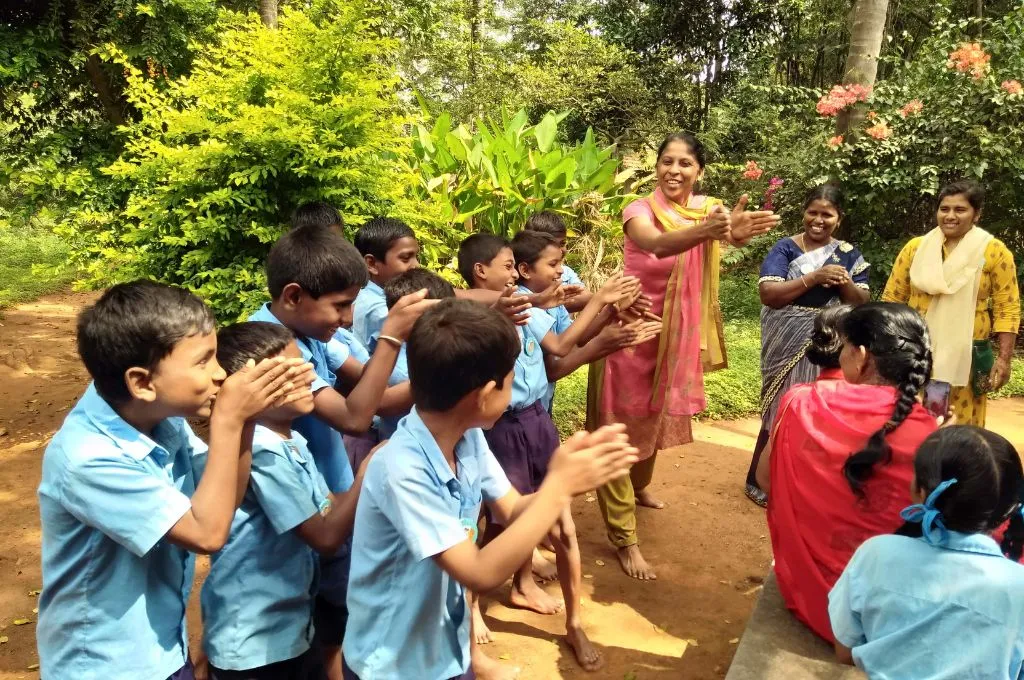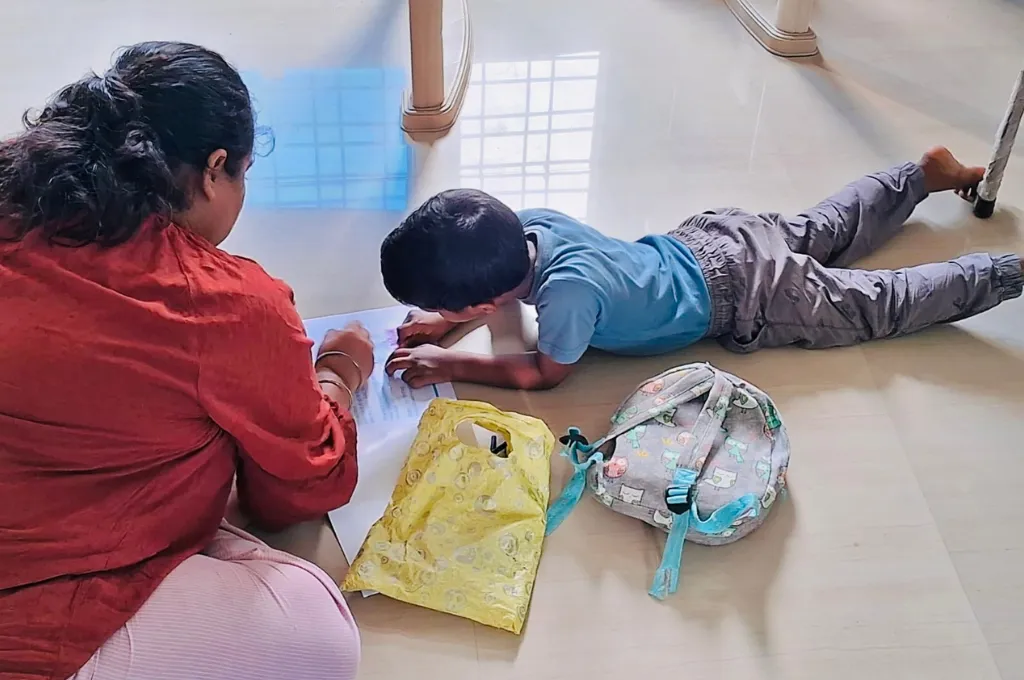Dr Rukmini Banerji, CEO at Pratham in conversation with Pranav Kothari, Vice President of Large Scale Education Programs at Educational Initiatives.
With Pratham, Rukmini’s work since 1996 has focused on designing and implementing large-scale programmes to help primary school children learn well. This is done through building collaborative partnerships with state governments and with village communities. Rukmini is also the director of ASER Centre, the autonomous research and assessment unit of Pratham.
Trained as an economist, she completed her BA at St. Stephen’s College and attended the Delhi School of Economics. She was a Rhodes Scholar at Oxford University and earned her PhD at the University of Chicago. Rukmini did her post-doctoral work at the Population Research Center at the University of Chicago and later worked as a programme officer at the Spencer Foundation.
Here are some key points from the conversation:
1:29 | Assessing student learning outcomes
“I think that overtime, the conversation about learning outcomes has certainly widened and deepened. We all see that the assessments scene has really, I would say almost exploded. Maybe there’s too much assessments now. But I think there is also an understanding that we need, for our conditions, to try different kinds of methods of doing assessments. How people are arguing on how assessments lead to action, I think, has also broadened.”
7:19 | The role of research and independent evaluation
“First, is having a real curiosity and a real skepticism about what are we really good at and let’s figure out because so many things can be done; has been very helpful right from the beginning. The second, I think is that if that is the curiosity that some of the leaders have; how do you let this curiosity seep all the way down?”
“I think imbuing a whole team and a whole big organisation with curiosity and skepticism about your own work is a good thing, because then you work harder.”
“Working with J-PAL certainly helped on the external front, but I think, also brought us a lot of benefits internally. It brought more rigour to how we think about things, it brought more understanding of what kind of measurement is doable, it brought an understanding of how you put all these different pieces together. And I think over the last ten years we have, on both sides, been much braver about saying that now when we start thinking about something, we will put an RCT (Randomised Control Trial) there because it helps the thinking, it helps the evolution.”
22:00 | Unifying vs decentralised forces in running Pratham
“We find we are quite goal-oriented. If I have a clearly articulated goal which comes with a common measurement, then the rest can be left to people to figure out how you’re going to get to that goal. We are from the same large family, so there will be variations but they won’t be dramatic variations which are way off the charts.”
“We’ve found that doing one common thing a year really helps. Because it brings everybody back into one common narrative. So, ASER for example, for many years was a very unifying theme. I used to notice how the key players of ASER in every state change every year.”
28:55 | Career trajectory at Pratham
“I can think of many [people’s career trajectories], but two in particular because they’re quite similar. One is called Nusrat Mallik, and the other is Parveen Sayyed. Both grew up in slums of Bombay and probably joined us roughly around the same as I did. They were Balwadi teachers. Today Nusrat is the head of our UP programme, she has 800 people reporting to her, and runs a big government programme, a big direct programme. Parveen is the person who heads our Urdu Resource Centre which is in itself quite something. She started as a Balwadi teacher and today not only does she head this programme but she also got a PhD.”
You can read the transcript of the full interview here. This video was originally posted on YouTube on EI’s channel.
EI Dialogues is a step towards building the conversation on education for social impact with an aim to confront blind spots, and stimulate our ways of thinking, knowing, and working on education in India. This video series attempts to synthesise perspectives around education reforms, technology for social impact, and systemic transformation by speaking to individuals from varying organisations working to improve education in India.





